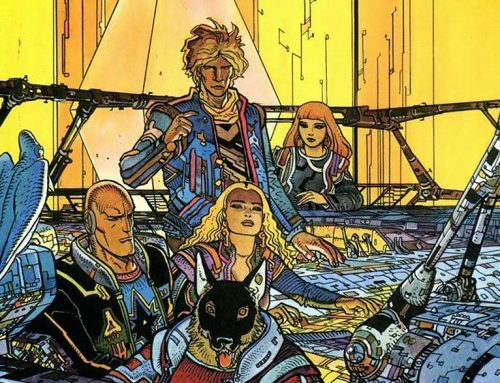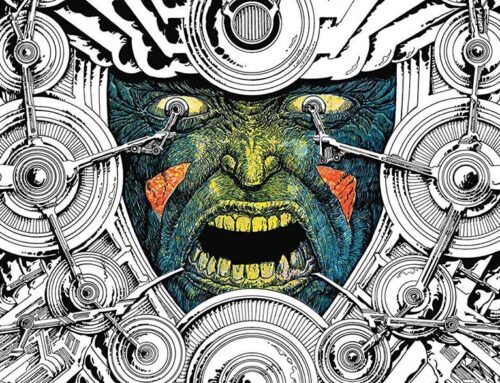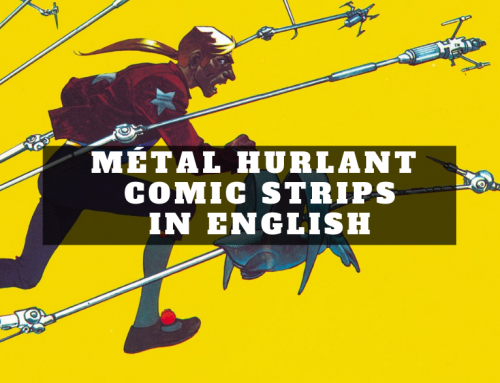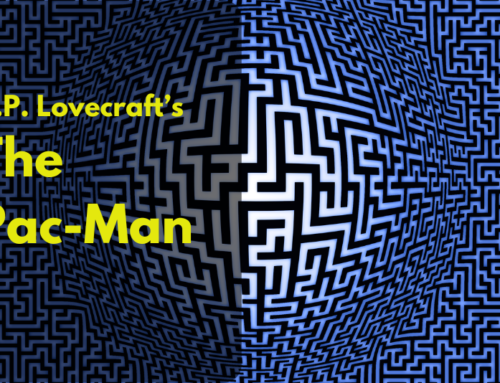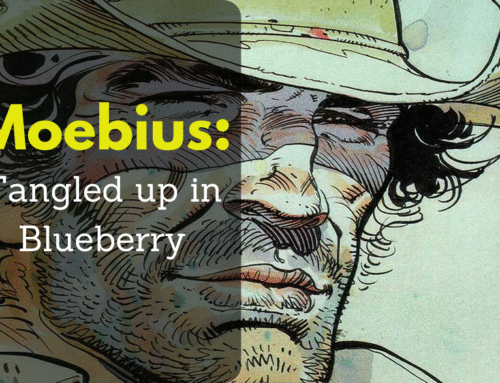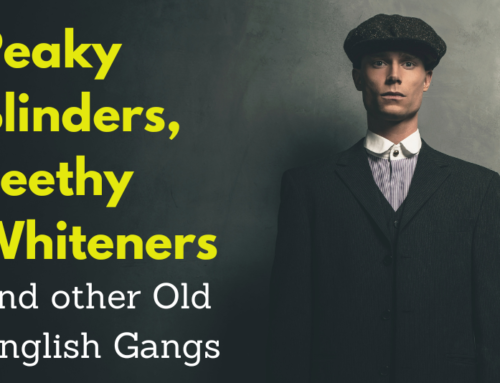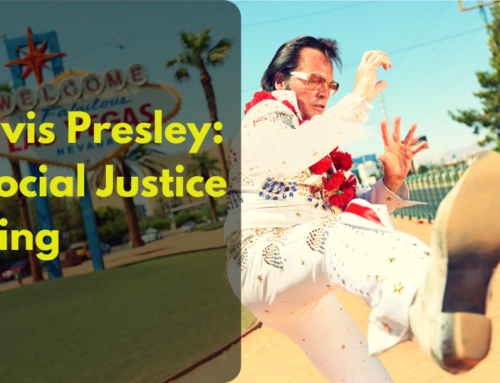Background Image: © Stanislav Kondratiev via Canva.com
These days, there are so many superhero movies and TV shows that Hollywood’s starting to resemble a big comic shop that’s obscenely rich and massively out of touch with the rest of the world. While spandex-clad franchises might seem harmless enough to anyone but Martin Scorsese, their popularity has drawn attention to a conflict that’s anything but heroic. This is the dark, weird, and often embarrassingly dressed world of superhero sectarianism.
Scorsese provoked a global geek-rage following revelations that he once told an interviewer that superhero movies “are not cinema”. The legendary film director vehemently denied this, claiming what he actually said was: “People who get into fights during DC or Marvel films are not moviegoers I’d care to share my popcorn with”. Scorsese, of course, famously invented the popcorn protest.
The mad-browed auteur had been discussing the recent case of Dicksplash P. Bubblecroft, the unhinged Zack Snyder fan who sustained life-changing injuries while clumsily review-bombing the new Superman movie. Scorsese described it as “a worrying escalation of nerd-on-nerd violence”, but to jaded comic fans, this was nothing new.
The Golden Age of Toxic Nerds
Sequential arts historian Professor Zeppo Connery claims that the first conflict between comics fans took place outside a Brooklyn drugstore in 1939, when proto-DC street gang the Defective Convicts snatched a pristine copy of Marvel Comics #1 from a 10-year-old boy. The comic featured the first appearance of Marvel’s Human Torch and Namor the Sub-Mariner, which prompted the mean-spirited thugs to set fire to the book and then drown it. The victim subsequently developed a phobia of both fire and water and was later unable to sell his comic at auction.
Scheduled fights between comics fans were suspended following Pearl Harbor (the Japanese military attack, not the Ben Affleck movie). President Roosevelt urged squabbling fanboy factions to put aside their differences and swap their autographed sketches for war bonds. Many wartime comics fans began collecting war bonds, which became highly collectible, especially the autographed ones. This armistice continued into the post-war years, as fans focused more on economic prosperity, rock and roll music, and the professional comic artist bare-knuckle boxing scene.
The Silver Age
Hostilities resumed in the 1960s, a decade synonymous with peace, love, and comics fans tear-gassing each other on American campuses. The arrival of the Fantastic Four, Spider-Man, and the Avengers marked the start of the Marvel Age of Comics and a new generation of radicalized comic readers.
These college-educated “Trotskyite Marvelites” would taunt and bully DC fans who tended to be younger and therefore shorter. They wrote angry letters to Playboy magazine, condemning Batman, Superman, and Wonder Woman as “out of touch, bourgeois, and hyphen-less”.
This noisy subculture of “Four-Color Freaks” and “Spinner Rack Johnnies” had a disproportionately strong influence on the Sixties, like an uncool Velvet Underground. The popular counterculture phrase “Stick it to the man”, for instance, was inspired by the Merry Marvel Marching Militia’s anthem “Stick it to the Superman”. This was a period of turbulent intergenerational conflict that spawned many modern anti-elder insults, although back then, “OK boomer” was still just a friendly greeting between post-war adolescents.
The 1970s comic convention boom gave comic fans a safe space where they could beat each other up in costume. This “Bullpen Bullying” later formed the backdrop to the failed sitcom spinoff That Seventies Seinfeld. Its unaired pilot featured high school friends Jerry (Freddie Prinze Jr), George (Elijah Wood), Elaine (Zooey Deschanel), and Kramer (Henry Kissinger) attacked by a mob of angry Marvel fans who caught them buying a Superman fridge magnet, played by Dean Cain.
1980s: Dark Knights of the Watchmen
Once an unfashionable underdog, DC upped their game in the 80s by attracting top comics talent who produced books that appealed to an older, taller readership. DC soon had extremist fan gangs to rival Marvel’s notorious MCUVF, like the Provisional JLA and the Real JSA. DC hardliners like the notorious husband-and-wife team Max E. and Minnie Sears would taunt recently bereaved Marvelites during candle-lit vigils for the X-Men’s Jean Grey, Elektra, and the original Captain Marvel, who had all recently died for the first time.
Frank Miller’s classic Batman: The Dark Knight Returns (1986) was hailed for its uncompromising critique of notoriously ageist Marvel gangs. The story featured a middle-aged Caped Crusader subjected to elder abuse by a gang of adolescent sociopaths called “The Mutants”, a term as synonymous with Marvel as “Stan Lee” and “unethical work-for-hire contracts”. Later that year, Watchmen (1986½) took this critique even further. Its mature deconstruction of superhero comics exposed some of the genre’s more problematic tropes and made people think twice about getting into scraps while dressed as Doctor Octopus.
Watchmen and The Dark Knight Returns topped The New York Times Bestseller list, so journalists at The New York Times were forced to read them. For many, it was their first exposure to “The Fandom Problem” and led to a six-month Times investigation into the American comics industry entitled “Biff! Pow! Comics are just for thugs these days”.
This sent shockwaves through Marvel and DC offices, with senior management afraid of being hit with congressional hearings and big cover-mounted warning stickers. The subsequent 1988 Marvel/DC Crossover Treaty was a watershed moment for the industry, and the sight of former enemies putting aside their differences and reading each other’s comics inspired the world. In the years that followed, the Berlin Wall came down, South Africa’s apartheid system was abolished, and the members of Fleetwood Mac finally attended counselling.
The 1990s: The Age of Nerdecadence
The 90s were a period of excess for Marvel and DC. With a speculator boom driving up revenues and sectarian tensions no longer in the air, comic conventions became champagne-guzzling feasts of unbridled hedonism, where an autographed Rob Liefeld anatomy book could get you anything you desired. Traditional boundaries between Marvel and DC were breaking down, and there was a permissive, anything-goes approach to intercompany crossovers.
While the liberal comic elites partied, disgruntled veterans of the Marvel/DC wars like Mylar Bagge and Baxter Paper could be found lurking in the dark corners of what was still called “The Inter-Net” before it was asked to remove the hyphen. They felt increasingly betrayed by the publishing houses they’d devoted the best years of their lives to. During this period, recognizable traits of online toxicity began to emerge, secretly beta tested by petty, squabbling dorks. The term “flame war” was coined by angry fans of The Human Torch, while the first recorded act of trolling occurred in an AbUsenet group dedicated to Pip the Troll.
21st Century Fanboys
Dissident factions from both sides longed for a return to the glory days of superhero sectarianism, when they’d happily whack each other across the face with rolled-up Previews catalogues. As superheroes began to dominate the 21st-century movie landscape, they eagerly anticipated a resumption of hostilities, welcoming the likes of Spider-Man, Iron Man, and The Dark Knight as Hollywood-subsidized recruitment videos.
Things didn’t go quite according to plan, however. While these hit movies created a new generation of comics fans, most weren’t interested in traditional Marvel vs DC tribal conflicts. Their focus was on challenging problematic tropes from the past through fan-based activist groups like the Social Justice League, the Upper West Side Avengers, and the Easily-Offended Guardian Readers of the Galaxy. Unfortunately, due to their ideological inflexibility, self-righteous neo-puritanism, and single-issue monomania, they spent most of their time fighting amongst themselves.
Despite this, they did manage to secure some concessions from Marvel and DC, who took steps to make their superhero universes more progressive, diverse, and inclusive. As a result, the formerly male-dominated comic convention scene saw an influx of smart, progressive young women who brought new voices and a hitherto unseen level of sophistication to graphic storytelling and cosplay.
The male-dominated veterans of the Marvel vs DC wars were horrified by these developments, which made them easy prey for unscrupulous right-wing podcasters. Some joined ultra-conservative “TradFan” communities, turning their back on modern superhero universes for the back-issued embrace of a predominantly male, predominantly white bygone era. They missed the old “Don’t Ask, Don’t Tell” approach to gay superheroes and were particularly hostile to trans characters, despite struggling to name any. This was ironic given how many of them would later transition from superhero fans to supervillain supporters.
Others went even further and joined far-right “Guns, Jesus, and Graphic Novel” militias like The Deep State Avengers, The Anti-Vaccine Titans, The X-Bros, The Birds of Prayer, The Fantastic 4Chan, The Challengers of the Indisputable, and Womb Patrol. The most extreme sanctuary for embittered comic war veterans was the Snyderverse Revivalists, a superhero movie-inspired doomsday cult that emerged during the 2010s. Fanatics like Dicksplash P. Bubblecroft violently rejected all forms of superhero storytelling except for a few DC movies directed by Zack Snyder. Followers believed that these films contained mystical teachings and esoteric knowledge that could only be understood by a select group of “High-IQ Disnydles”, a term that was later rejected for looking too much like “Disney”.
They believed that Snyder was inspired by a series of mystical transmissions he received from an extradimensional entity known only as “Clive from the Planet Zanussi.” Snyder himself has strongly denied these claims, and when recently asked to comment on the subject, said: “Will you please tell these assholes to leave me alone.”
The movement imploded in 2021 when the release of Snyder’s original cut of Justice League did not lead to a prophesied Apocalyptic Rapture or result in any of the members getting a girlfriend. In the years that followed, a variety of quasi-religious splinter groups have emerged, including The Caped Edge-Lord Baptists, The Slo-Mo Episcopalians, The Evangelical No-Star Review Presbyterians, The Pentecostal Cavillistas, and the Church of the Latter-Day Marthas. These groups remain committed to sabotaging “heretical” superhero movies while swooning over pictures of Henry Cavill.
The radical movements attracted veterans from both ends of the comics publishing spectrum. As former DC gang member turned Snyderverse Revivalist Lon Bochs puts it, “Fighting fellow DC fans was better than fighting no one at all.” The era of traditional superhero sectarianism was over, replaced by a chaotic, endless conflict fueled by rage, gullibility, and low self-esteem. “What we have now is a civil war”, notes Professor Connery. “Just like that movie where Iron Man fights Captain America, or the other one with Mary Jane from Spider-Man.”
Martin Scorsese might not like it, but that’s going to take more than just a popcorn protest to fix.
Ad: Related stuff at Amazon
I may be prone to bouts of satire, but I really do love comics – they’re ace. Here are some comics I love. As an Amazon Affiliate I can earn a commission if you click a link and make a purchase at no additional cost to you.
- Hickman, Jonathan
- Chen, Sean
- Granov, Adi
- Byrne, John
- Marvel Various
- Byrne, John

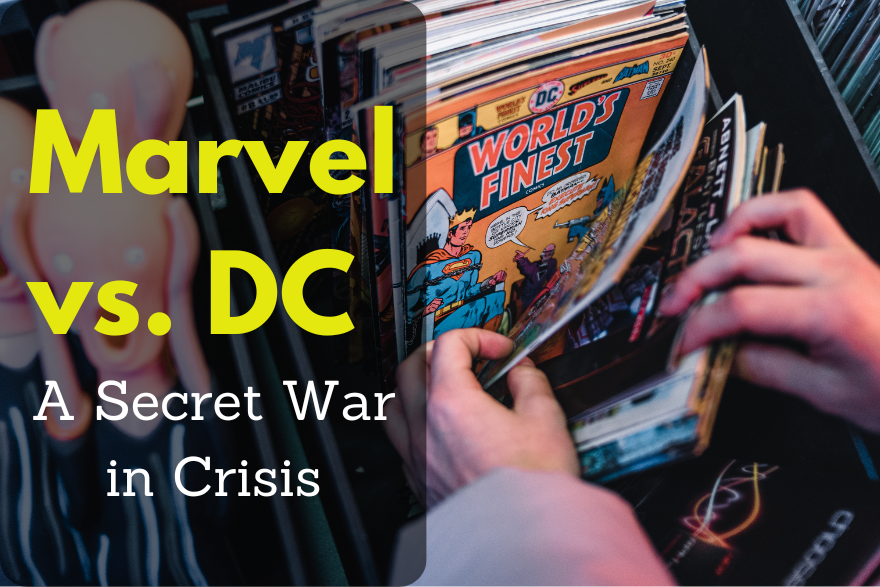






![Fantastic Four By John Byrne Omnibus Vol. 1 [New Printing 2] (Fan...](https://m.media-amazon.com/images/I/51-8lD0JDsL._SL500_.jpg)
